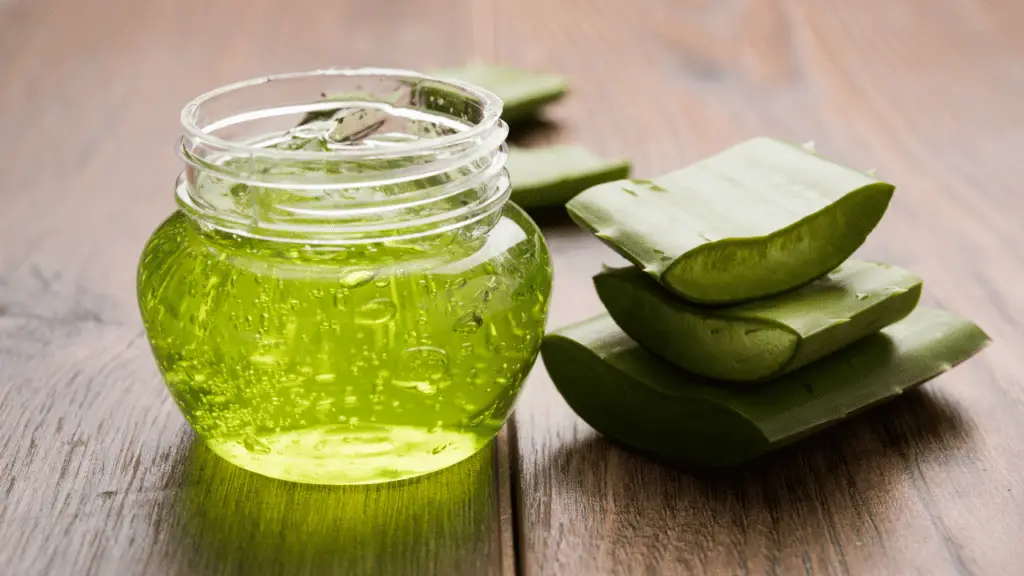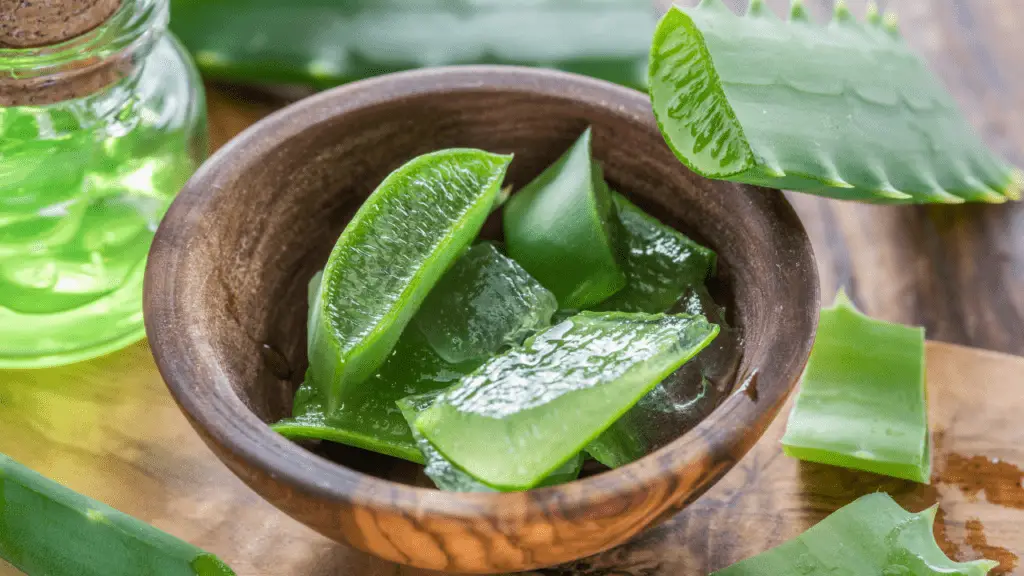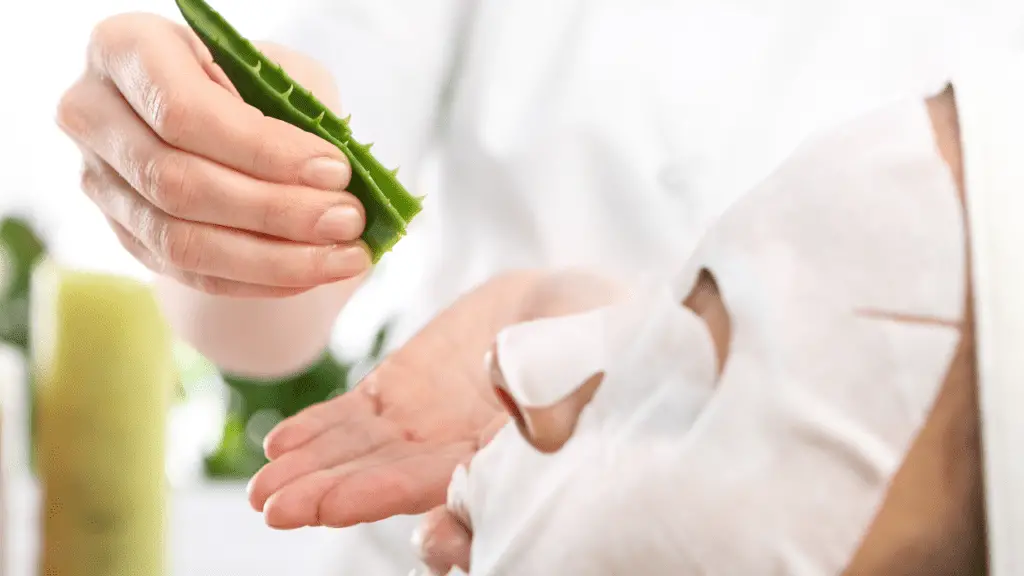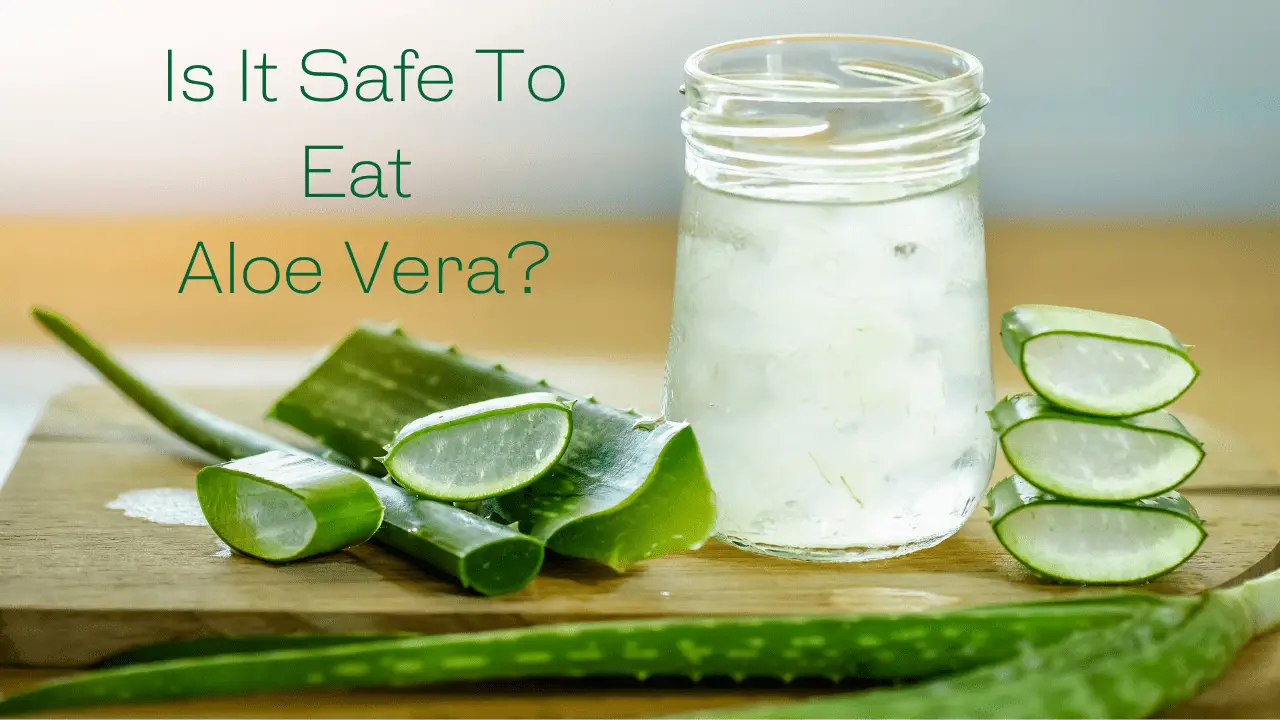An important member of the Aloe genus, Aloe vera is one of the oldest herbs used medicinal plants. It is a succulent species that flourish in the tropical climate. You can make the thick gooey aloe vera juice from the flesh or gel of the plant's leaf.
Next to the gel is a thin latex layer covered by the leaf's skin on the outer side. This article summarizes the health benefits and complications of aloe vera and whether it is safe to eat or not.
Medicinal Benefits of Aloe Vera:
Aloe vera is renowned for its exceptional effects when applied to the skin. But to find out whether it is safe to eat aloe vera or not, let's discuss its medicinal benefits:
Treating heartburn and vomiting:
Researchers and doctors conducted various studies to determine whether aloe vera plays a part in treating heartburn and constipation. In one trial conducted in 2015, some patients with GERD were treated with an aloe vera extract in syrup.

After four weeks, the patients found relief from their heartburn, belching, nausea, vomiting, dysphagia, and flatulence. On the contrary, the patients who were not treated with the aloe vera extract did not see any improvement in their condition whatsoever.
Aloe vera also contains laxatives rumored to treat constipation, but the research that supported this theory was outdated. So, scientists started to dig up fresher, more reliable evidence to check whether the rumors were true. They found that aloin found in aloe vera works effectively in treating constipation.
Stabilizing blood sugar levels:
One of the most common disorders nowadays is diabetes. The blood glucose levels of a diabetic patient are elevated, which leads to several complications such as fatigue and hunger.
If you were to leave them untreated, the patient's condition could become very critical. Hence, doctors advise the patients to take every measure possible to control their blood glucose levels.

Typically, physical activity and a healthy diet work great in lowering the risk of diabetes and improving the symptoms. Aloe vera also stabilizes blood sugar levels and is recommended to diabetic patients.
Moreover, it also decreases the chance of developing type 2 diabetes in patients with prediabetes. In 2016, some researchers published their experiment in the Journal of Clinical Pharmacy and Therapeutics.
According to their research, eating aloe vera juice and powders lowered the plasma glucose levels in the participants. Aloe vera reduces the absorption of glucose from the gut and decreases its production in the body.
Controlling hypertension:
The American Heart Association has labeled hypertension and high blood pressure as the “silent killer.” The reason behind this is that high blood pressure damages our blood vessels.
With time, the risk of a heart attack, stroke, and other cardiovascular disorders becomes too high. To better understand how aloe vera keeps blood pressure maintained, let's look at this research.
The participants were divided into three groups. The first group received 100mg of aloe vera gel powder, while the second group received 200mg of aloe vera gel powder. The third group received no such treatment.

After six months, the blood pressure of all the three groups was evaluated. The researchers found that the aloe vera gel powder helped control the patients' blood pressure levels. Aloe vera contains a rich source of magnesium.
On one front, magnesium helps in the activation of several necessary enzymes. Some of these enzymes control blood pressure. On the other hand, magnesium also aids in the regulation of heart rate.
Dealing with IBD and stomach ulcers:
Inflammatory Bowel Disease or IBD is a plethora of complications and disorders that can significantly decrease the quality of life. Crohn's disease, abdominal cramps, bloody diarrhea, rectal bleeding, and ulcerative colitis are most pronounced.
Doctors prescribe a dilute solution of aloe vera gel twice a day to patients with Crohn's disease. Aloe vera is noted for its anti-inflammatory and analgesic properties, the primary agents that help treat colitis.

Moreover, aloe vera gel is also a science-backed home remedy for treating stomach ulcers. Although aloe vera boasts exceptional healing properties, that does not mean you stop taking the antibiotics for your ulcer.
Excellent antioxidant properties:
Aloe vera, also called “the Lily of the Desert,” plays a vital role in defending the body against free radicals. It is believed that aloe vera contains anti-inflammatory substances called polyphenols.
The same substances also perform the functions of antioxidants. Antioxidants protect the body from a great variety of diseases caused by free radicals. Cancer, asthma, dementia, atherosclerosis, and degenerative eye disease are the deadliest.
Moreover, aloe vera also contains several vitamins, such as vitamin A, vitamin C, and vitamin E. These vitamins possess excellent antioxidant properties and aid the body's most basic functions.

For instance, vitamin A helps improve the vision of the eyes, while vitamin E bolsters the immune system. On the other hand, Vitamin C promotes healthier skin, bones, and cartilage. Hence, in addition to its antioxidant role, aloe vera is a blessing for our body.
Risks and Complications:
Although aloe vera boasts numerous health benefits, it can also cause several health issues and complications. Below are some of the risk factors of eating the Elephant's gall:
Latex and its hazards:
Remember the aloe vera latex that helped relieve constipation? Well, the same sticky substance that comes from underneath the plant's skin can prove to be very toxic for you.
- Allergic reaction: If someone is allergic to latex, eating it can lead to gastric irritation, stomach cramps, pain, and decreased serum potassium levels. Loss of potassium has several adverse effects on the body, including muscle fatigue, weakness, and irregular heartbeat.
- Cancerous effects: The latex in aloe vera can also cause the onset of cancer, particularly in the large intestine.
- Kidney issues: Long-term usage of aloe vera latex can lead to kidney disease and cardiac problems.
- Birth complications: Latex can also induce contractions in a pregnant woman, which can cause a miscarriage or preterm labor.
- Crohn's disease: Aloe vera gel is quite effective for treating Crohn's disease. But, aloe vera latex makes the condition of the patients even worse.
- Dehydration: The laxative effect of aloe vera latex is excellent for constipation. But, it can also cause dehydration in severe cases.
- Complications in children: Aloe vera latex is also dangerous for children under 12, as it can cause stomach pain, diarrhea, and cramps.
Due to these reasons, the US FDA banned over-the-counter selling of any products that contain aloe vera latex. In severe cases, eating latex can be fatal and result in death.
Issues with aloe vera juice:
- Allergy: Aloe vera juice has numerous health benefits. But some people are allergic to this component of aloe vera. If such people eat aloe vera, it can cause a series of allergic reactions such as skin allergies, rashes, irritation, burning, and eye redness. It can also lead to extreme swelling, hives, and abdominal pain in more severe cases.
- Complications in pregnant women: Additionally, aloe vera juice possesses irritating qualities, which is why pregnant and lactating women should avoid it. It also initiates contractions in pregnant women and causes birth complications in some cases.
- Muscle weakness and fatigue: Like latex, aloe vera juice also lowers blood potassium. As a result, the patient suffers from muscle weakness, fatigue, and irregular heartbeat. For this reason, doctors advise elderly and sick people to avoid aloe vera juice.
- Digestive issues: Stomach issues, along with cramps and pain, are also observed in people who consume aloe vera juice.
Drug interactions:
Sometimes, a food item you consume may either block the effect of a drug you're taking or increase its impact. As a result, you may experience some severe health issues and side effects.
- Antidiabetic drugs: For instance, people with diabetes take insulin, which lowers their blood sugar level. If a diabetic patient consumes aloe vera, the juice will also reduce their glucose levels. As a result, the patient experiences a condition called hypoglycemia. Typical symptoms of hypoglycemia include fast heartbeat, weakness, dizziness, anxiety, and irritability. In stringent cases, the patient may lose consciousness, or worse, reach a state of coma.
- Oral laxatives and aloe vera: Similarly, patients taking oral laxatives may experience diarrhea and decreased serum potassium levels after eating aloe vera.
- Drugs that slow blood clotting: Aloe vera slows blood clotting and makes the blood thin. If aloe vera is taken with blood-thinning medicines or anticoagulant medications, it can increase the risk of bleeding and bruising.
So, is it Safe?
All this discussion brings us back to our main question. On the one hand, aloe vera brings numerous health benefits and advantages. On the other, consuming aloe latex and juice can lead to various issues, from miscarriage and anxiety to dehydration. So, is it safe to eat aloe vera?
Well, the answer is yes and no. Aloe vera juice and its skin are safe to eat, but only in a limited amount. The maximum dosage of aloe vera liquid that is safe to consume varies from individual to individual.

But typically, experts suggest not eating more than 30 ml of it three times a day. If you use aloe vera tincture instead of juice, take 15-60 drops each day. About 1:10, 50 percent alcohol is the optimum dilution. Other than a few clinical studies, none have used higher than 500 mg orally.
On the contrary, aloe vera latex is not safe for consumption, even in lower quantities. The only benefit that comes with eating aloe latex is relief from constipation. One should avoid this benefit compared against the long list of adverse effects, including possible fatality. It is so dangerous that experts recommend washing the gel and skin thoroughly to remove latex traces.
Topical aloe vera and skincare products:
Now that we know whether it's safe to eat aloe vera or not let's talk about topical and skincare products.

Like aloe latex, aloe vera skincare products are harmful to health when eaten. For this reason, they are not meant to be eaten. But, when applied to the skin appropriately, these products are beneficial. Here are a few benefits of using aloe vera topically:
Treating burns:
Dermatologists suggest applying aloe vera gel three times a day on the affected area. Due to aloe vera's soothing, cooling, and moisturizing effect is an excellent treatment for minor burns.
Clearing acne:
Aloe vera is also effective for clearing acne. Skincare products containing aloe vera are more effective and less irritating than conventional ones.
Soothing sunburn:
Aloe vera has no effect whatsoever in preventing sunburn. But, it works wonders on sunburns.
Healing minor abrasions:
Aloe vera has excellent painkilling properties. It provides quick relief to burning sensations it is used to treat minor abrasions.
Dry skin:
Do you feel like your skin becomes too dry, even when you regularly use a moisturizer? Well, it's time to swap that moisturizer with aloe vera products to get fresh soft skin. Moreover, aloe vera also absorbs oil effectively, making it great for oily skin.
Excellent wound healing:
Nothing beats the likes of aloe vera as a topical medication. According to the United States Pharmacopeia, aloe vera has been used for healing wounds since the early 1800s.
Final Take:
Like every other food item, aloe vera can provide you with some of the best health benefits. There is plentiful research to back up and prove that eating aloe vera can improve digestion and bolster your immunity.
But, the identical aloe vera can significantly mess up your health. The deciding factor is the amount and part of the aloe vera. Usually, other than the latex, aloe vera is safe to eat in normal quantities.

Always consult your doctor and ask for their advice before beginning any new diet or treatment, especially while taking medications.





